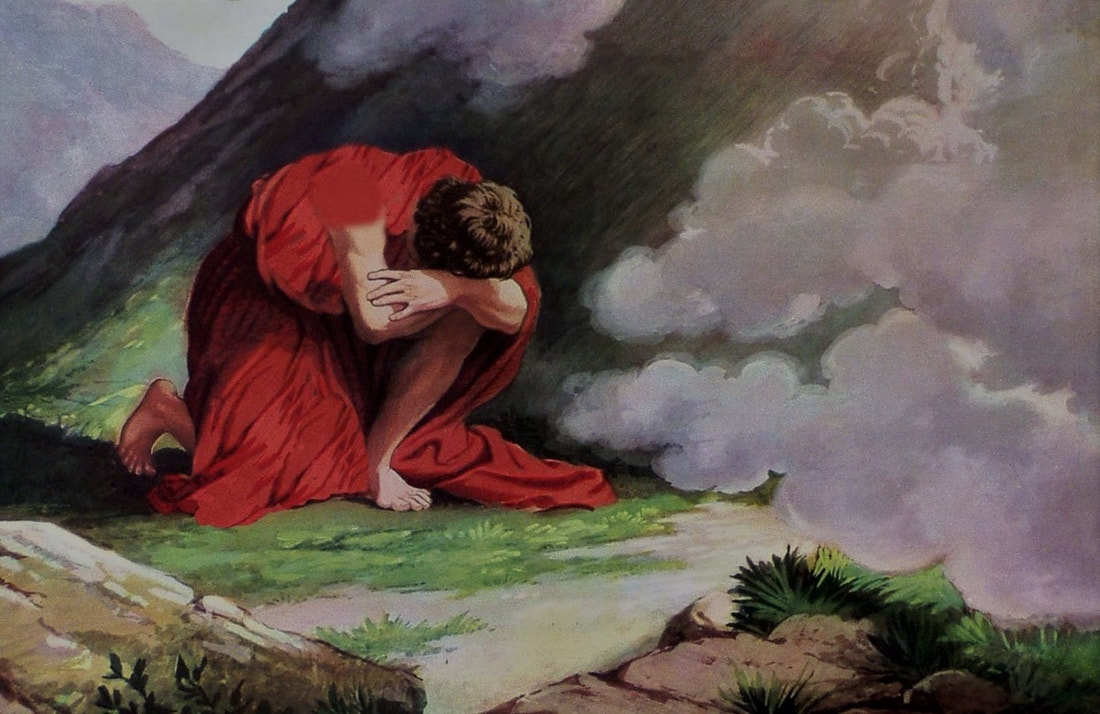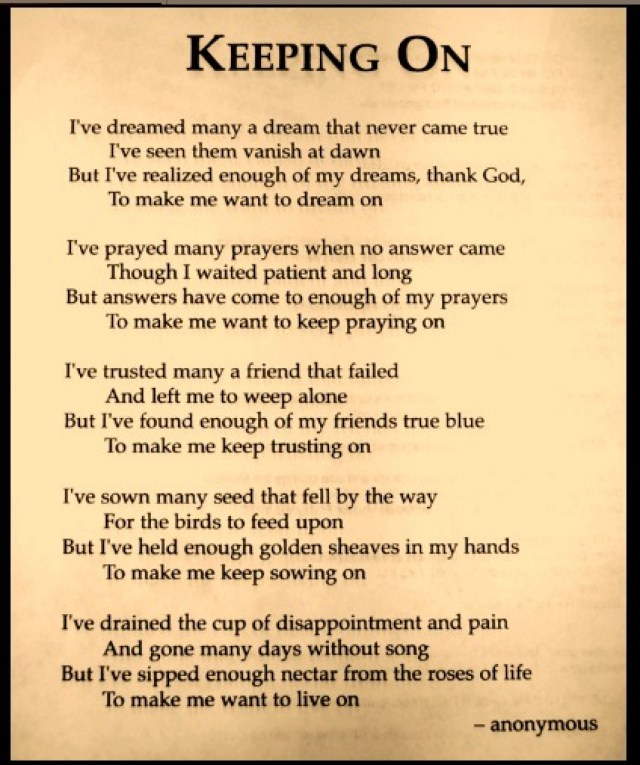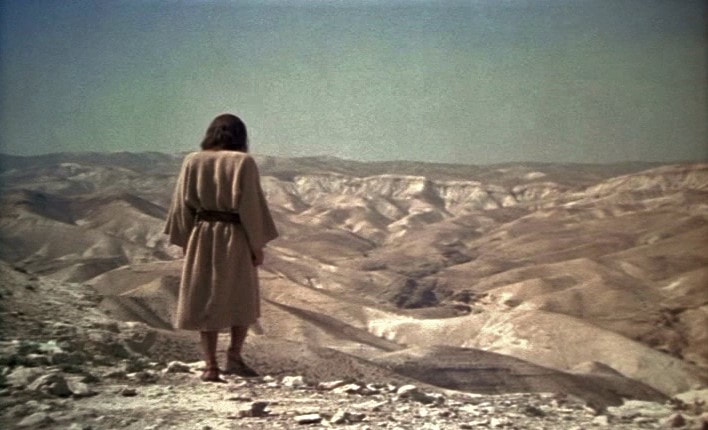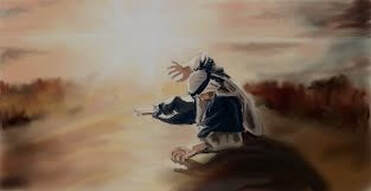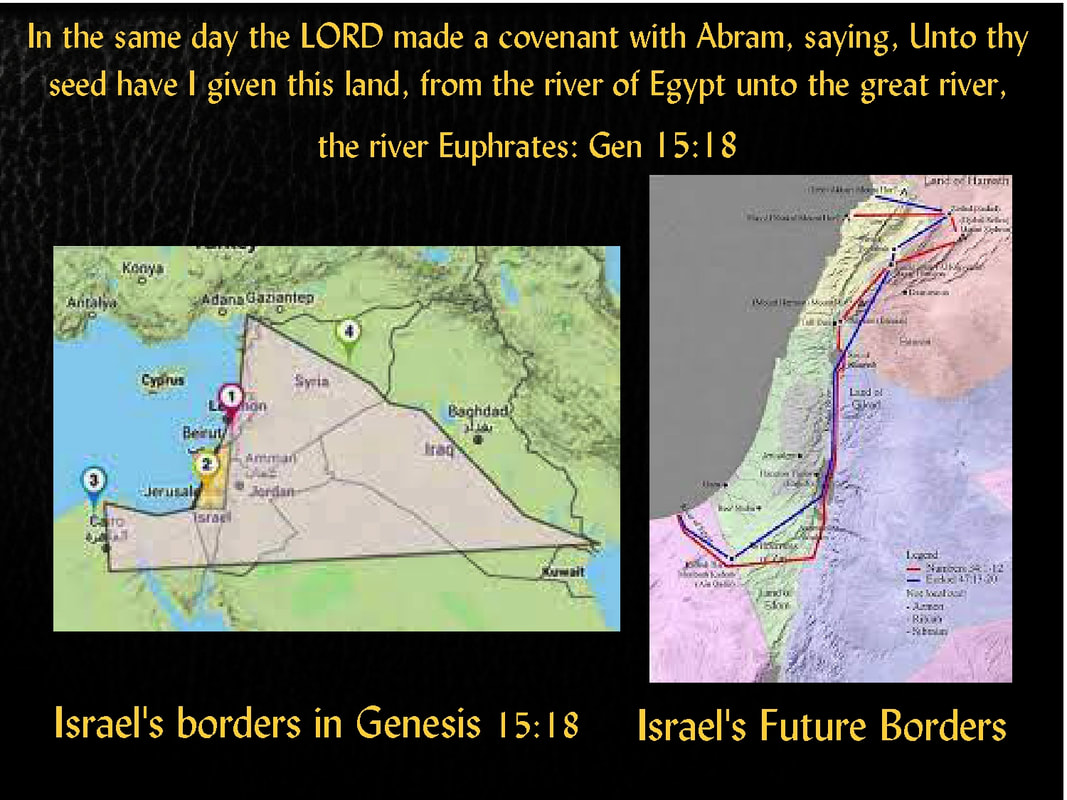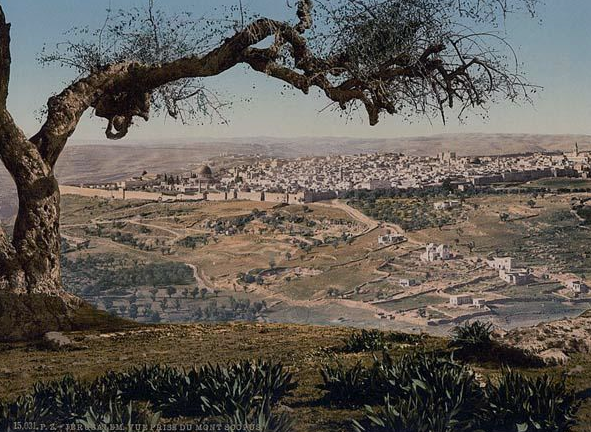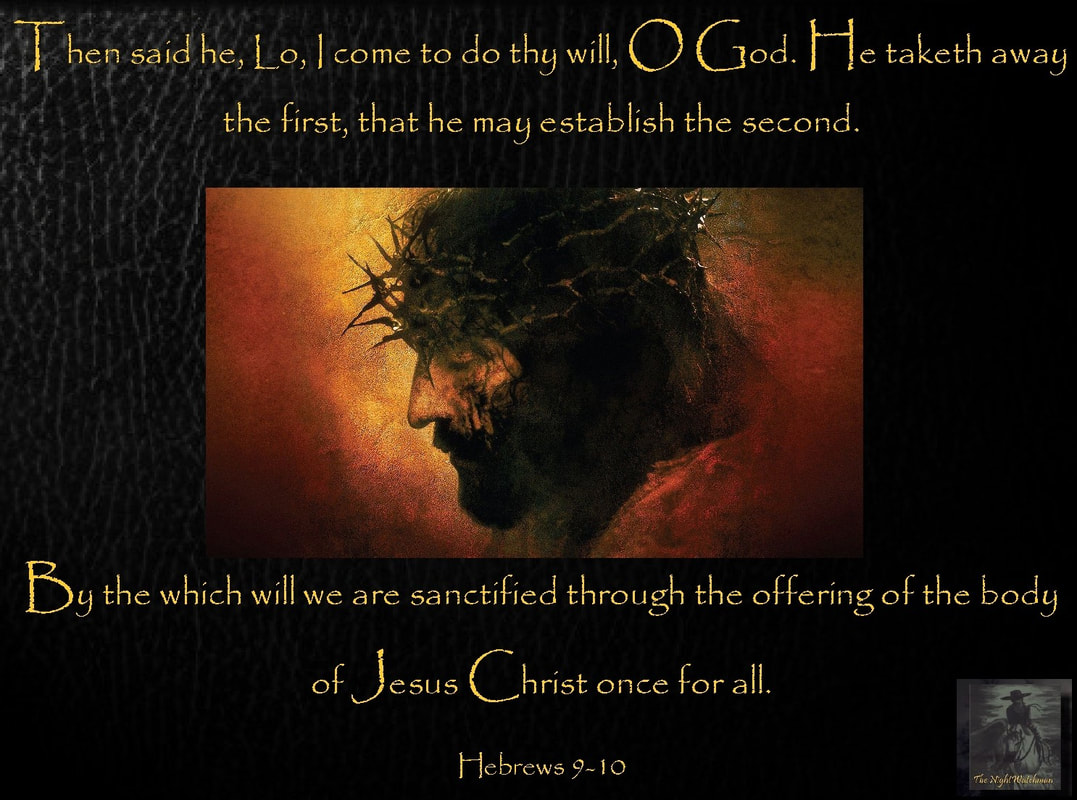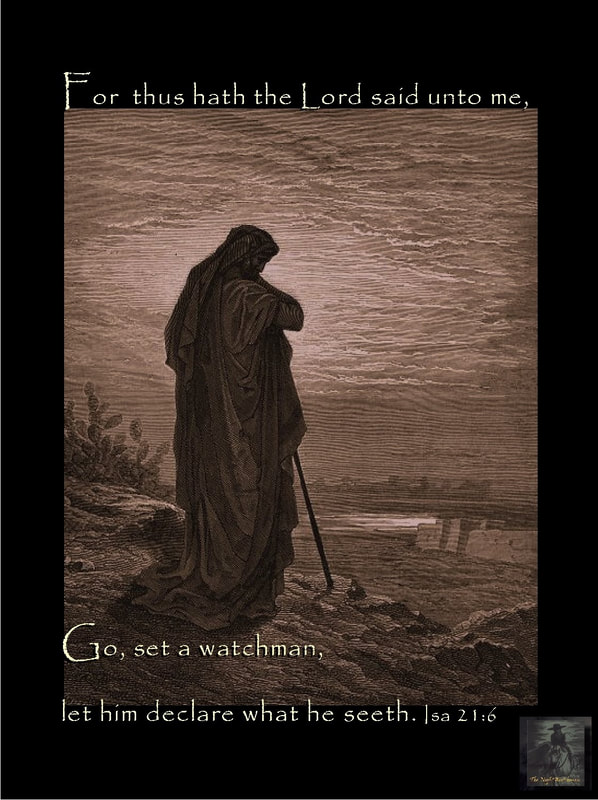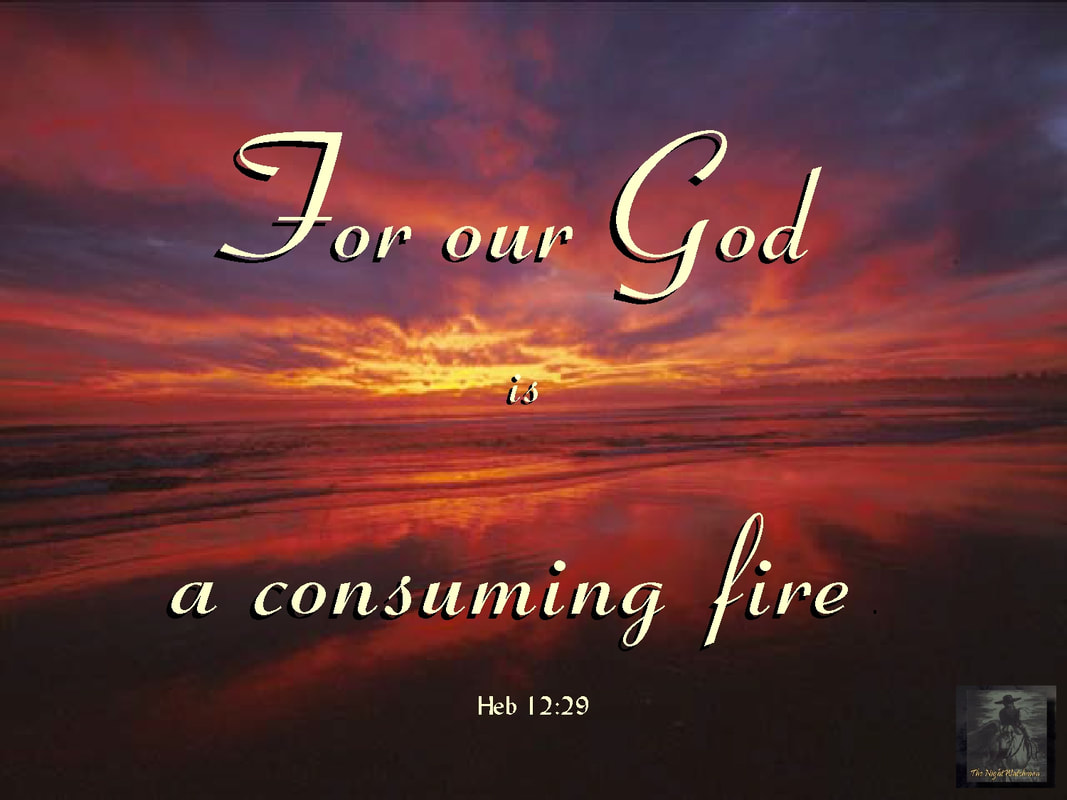|
And as it is appointed unto men once to die, but after this the judgment: So Christ was once offered to bear the sins of many; and unto them that look for him shall he appear the second time without sin unto salvation. Heb. 9:27-28 There is a universal appointment and truth that everyone will experience. It is the day and time of our death. Some points will be brought out concerning this appointment: HERE WE SEE AN APPOINTMENT, A DECREE, A SENTENCE: WHEREIN FOUR CIRCUMSTANCES ARE TO BE OBSERVED. 1. By whom this appointment is made, namely, by God Almighty, in whom there is not a shadow of turning, and which is able to bring that to pass which He hath appointed. Men are mutable; they appoint and disappoint; it is not so with God; hath He said it, and shall He not do it? Therefore, as sure as God is in heaven, this appointment shall stand. Who at any time has resisted His will? who can break His appointment? 2. What it is that is appointed—once to die. What is death? Properly to speak, it is a separation of the soul from the body. 3. There is an extraordinary dying, and an ordinary. Some have died twice, as Lazarus, and those that rose with Christ at His resurrection; but ordinarily it is appointed to all men once to die. It is not appointed to all to be rich, wise, learned, but to die. 4. Why was this appointment made? Because of sin (Rom_5:12), “at what time thou eatest, thou shalt die the death.” Why are we afraid of the plague? Because it will kill us. Sin will kill both soul and body; therefore let us all be afraid to sin. 5. The persons to whom this appointment is made, to men—to all men. There is no man living but shall see death: it is appointed to kings to die, to dukes, earls, lords, knights, gentlemen, merchants, clothiers, husbandmen, to high and low, rich and poor, learned and unlearned. It is appointed to the ministers to die, and to the people; to the master, and servant; to the husband, and to the wife. We read of a woman that had seven husbands, they all died, and in the end the woman died also. None can avoid the stroke of death: the physicians that cure others, at the length die; the godly die; so good men and women die, as well as bad, as the faithful are sick as well as the unfaithful, so also they die as well as others. The rich, and the poor alike, will meet together-and all will be judged. The Contrast of Death Between the Sinner and The Saint As it is appointed unto men once to die, etc. The fixed order for all men is to die once only, and to be judged after death. When they die, finality is stamped, on their life work. This verse settles the argument on reincarnation-it does not exist. No one is going to come back again, and get a second chance to redeem themselves, or evolve into a higher plane of existence. God's set order is we are born once into this life, and it is here we are in the school of good verses evil. The choices we make in this life, and what we do with Jesus Christ here, is what determines our eternal fate. 2Co 5:10 For we must all appear before the judgment seat of Christ; that every one may receive the things done in his body, according to that he hath done, whether it be good or bad. Everyone, when they come to the throne of God, will bow the knee to Jesus Christ, and honor Him, whether they believe in Him or not. Rom 14:11 For it is written, As I live, saith the Lord, every knee shall bow to me, and every tongue shall confess to God. Rom 14:12 So then every one of us shall give account of himself to God. Mat 10:32 Whosoever therefore shall confess me before men, him will I confess also before my Father which is in heaven. Mat 10:33 But whosoever shall deny me before men, him will I also deny before my Father which is in heaven. So Christ was once offered. Died once as a sin offering. But judgment followed, and he was justified and vindicated by his resurrection. He died once, and after it was the judgment, that made him the King of glory. His work of redemption was done once for all. The resurrection is the basis for the Christians faith. He died once, rose again and ascended into heaven. In John ch. 14, he gave specific promises to those who believe in Him, which we can hold onto: Joh 14:1 Let not your heart be troubled: ye believe in God, believe also in me. Joh 14:2 In my Father's house are many mansions: if it were not so, I would have told you. I go to prepare a place for you. Joh 14:3 And if I go and prepare a place for you, I will come again, and receive you unto myself; that where I am, there ye may be also. This reference is not to Christ's return from the grave, but to a return from heaven, the second coming of the Lord, which is a very important part of the Christian faith. Also the verses spoken by Paul give the assurance to the believer, of what happens to those who died in faith and trust in Christ: 2Co 5:6 Therefore we are always confident, knowing that, whilst we are at home in the body, we are absent from the Lord: 2Co 5:7 (For we walk by faith, not by sight:) 2Co 5:8 We are confident, I say, and willing rather to be absent from the body, and to be present with the Lord. So unto them that look for him. All the saints who desire his appearing; to them he shall appear a second time, at his second advent, sinless and the mighty Savior. He becomes a sin offering but once, and appears the second time without a sin offering, because he hath done the work once and forever. Rev 1:5 And from Jesus Christ, who is the faithful witness, and the first begotten of the dead, and the prince of the kings of the earth. Unto him that loved us, and washed us from our sins in his own blood, Rev 1:6 And hath made us kings and priests unto God and his Father; to him be glory and dominion for ever and ever. Amen. Rev 1:7 Behold, he cometh with clouds; and every eye shall see him, and they also which pierced him: and all kindreds of the earth shall wail because of him. Even so, Amen. Rev 1:8 I am Alpha and Omega, the beginning and the ending, saith the Lord, which is, and which was, and which is to come, the Almighty. "Sinners in the Hands Of An Angry God" Jonathan Edwards (Excerpt from “Sinners in the Hands of An Angry God” by Jonathan Edwards)
"All wicked men’s pains and contrivance, which they use to escape hell, while they continue to reject Christ, and so remain wicked men, do not secure them from hell one moment. Almost every natural man that hears of hell, flatters himself that he shall escape it; he depends upon himself for this own security; he flatters himself in what he has done, in what he is now doing , or what he intends to do. Every one lays out matters in his own mind how he shall avoid damnation, and flatters himself that the contrives well for himself, and that his schemes will not fail. They hear indeed that there are but few saved, and that the greater part of men that have died heretofore are gone to hell; but each one imagines that he lays out matters better for his own escape than others have done. He does not intend to come to that place of torment; he says within himself, that he intends to take the effectual care, and to order matters so for himself as not to fail. But the foolish children of men miserably delude themselves in their own schemes, and in confidence in their own strength and wisdom; they trust to nothing but a shadow. The greater part of those who heretofore have lived under the same means of grace, and are now dead, are undoubtedly gone to hell; and it was not because they were not as wise s those who are now alive; was not because they did not lay out matters as well for themselves to secure their own escape. If we could speak with them, and inquire of them, one by one, whether they expected, when alive, and when they used to hear about hell ever to be the subjects of that misery: we doubtless, should hear one and another reply, “No, I never intended to come here: I had laid out matters otherwise in my mind; I thought I should contrive well for myself: I thought my scheme good. I intended to take effectual care; but it came upon me unexpected; I did not look for it at that time, and in that manner; it came as a thief: Death outwitted me: God’s wrath was too quick for me. Oh, my cursed foolishness! I was flattering myself, and pleasing myself with vain dreams of what I would do hereafter; and when I was saying Peace and safety, then suddenly destruction came upon me." During the years I worked with seniors and the disabled, many fit the description given by Jonathan Edwards. I watched some of them go to their death in that state, without ever having any desire to know the God who created them. They were unprepared to meet God, and had made the decisions that were sealing their fate; a Christless eternity in hell. I witnessed a variety of attitudes in these lost souls, arrogance, mocking, indifference, cursing, up until the last days and hours of their life. But, when the last day came; there was also much fear, torment, sorrow, and in some cases anger. One thing could have changed the entire outcome, simple repentance, and asking Jesus to forgive them and receive His mercy, and receive Him as their Redeemer. Some of them, I had prayed for many months and years. I had the pleasure of praying with a few of them, who did get saved, and saw the peace that came over them, and the quiet assurance of knowing they would be in heaven soon. But, there were also those who did not, and saw the difference in their last hours; my heart wrenched knowing their fate, which was soon to come. Instead of reaching out for the love and forgiveness of God, and letting Jesus in, they kept their hearts shut up, and dead in trespasses and sins. Even then, in their last moments, would not change their hearts or minds. Are you among those described by Edwards in this excerpt? Are you unprepared to meet the Lord? I pray you will consider this question, because it is the most important one you need to face in this life. No one will escape the appointment we all must face with Him. Lorna Couillard And what shall I more say? for the time would fail me to tell of Gedeon, and of Barak, and of Samson, and of Jephthae; of David also, and Samuel, and of the prophets: Who through faith subdued kingdoms, wrought righteousness, obtained promises, stopped the mouths of lions, Quenched the violence of fire, escaped the edge of the sword, out of weakness were made strong, waxed valiant in fight, turned to flight the armies of the aliens. Women received their dead raised to life again: and others were tortured, not accepting deliverance; that they might obtain a better resurrection: And others had trial of cruel mockings and scourgings, yea, moreover of bonds and imprisonment: They were stoned, they were sawn asunder, were tempted, were slain with the sword: they wandered about in sheepskins and goatskins; being destitute, afflicted, tormented; (Of whom the world was not worthy:) they wandered in deserts, and in mountains, and in dens and caves of the earth. Heb 11:32-38 Hebrews chapter eleven is referred to as the hall of faith-I recommend reading the entire chapter. In this study, verses 32-38 will be focused on. We can get a lot of encouragement and insight in these verses, some commentary notes will be used to help open these verses up for us; along with a quote from Charles Spurgeon-the prince of preachers. Albert Barnes brings clarity to these verses as we begin: Of whom the world was not worthy - The world was so wicked that it had no claim that such holy men should live in it. These poor, despised, and persecuted people, living as outcasts and wanderers, were of a character far elevated above the world. This is a most beautiful expression. It is at once a statement of their eminent holiness, and of the wickedness of the rest of mankind. They wandered in deserts ... - On the Scripture meaning of the word “desert” or wilderness, see the notes on Mat_3:1. This is a description of persons driven away from their homes, and wandering about from place to place to procure a scanty subsistence; compare 1 Macc. 1:53; 2 Macc. 5:27; 6:7. The instances mentioned in the Books of Maccabees are so much in point, that there is no impropriety in supposing that Paul referred to some such cases, if not these very cases. As there is no doubt about their historic truth, there was no impropriety in referring to them, though they are not mentioned in the canonical books of Scripture. One of those cases may be referred to as strikingly illustrating what is here said. “But Judas Maccabeus with nine others or thereabout, withdrew himself into the wilderness, and lived in the mountains after the manner of beasts, with his company, who fed on herbs continually lest they should be partakers of the pollution;” 2 Macc. 5:27. The JFB commentary confirms this view: Of whom the world was not worthy — So far from their being unworthy of living in the world, as their exile in deserts, etc., might seem to imply, “the world was not worthy of them.” The world, in shutting them out, shut out from itself a source of blessing; such as Joseph proved to Potiphar (Gen_39:5), and Jacob to Laban (Gen_30:27). In condemning them, the world condemned itself. JFB commentary From F.B. Meyer, we get some rich insights: “THE NOBLE ARMY OF MARTYRS” Strong faith is consistent with very different views of religious truth. The conception that Abel, Enoch or Noah had of so-called Christian truth was very slight; but the faith with which they grasped the scanty truth revealed to them was mighty, soul-transforming and world-moving. Walk through this long corridor of statuary. These persons were of every age and temperament; shepherds, statesmen, prime ministers, psalmists, poets, border chieftains, prophets, women martyrs-but they are all trophies of faith. The variety is extraordinary, but the unity is undeniable. The beads are many, but there is one golden thread uniting them all. Their circumstances and trials were widely different, but in all the talisman of victory was faith’s watchword-God is able. There is no kind of need, trial, persecution, experience, for which faith is not the sufficient answer. It is the master key for every lock of difficulty. Fit your case into one of the clauses and what once was, shall be again. F.B. Meyer On the issue of temptations and trials-an excerpt from the Bible Illustrator: “They were tempted”: it does not say how. If one form of temptation had been mentioned, we should have surmised that they did not suffer in other ways, but when the statement is, “they were tempted,” we shall not be wrong in concluding that they were tried in any and every form. Whatever form temptation may take, in some or in all the saints, that temptation has been endured. We may say of Christ’s mystical body as we may say of Christ’s self—“tempted in all points like as we are.” The saints who are in heaven were tempted in all ways. They were tempted by threats, but they were equally tempted by promises. They were equally deaf to either form of solicitation: they could not be driven, and they could not be drawn; however the net might be spread they could not be taken in it. They have been tempted in subtlest fashion: reason and rhetoric, threat and scorn, bribe and blandishment, have all been used, and used in vain. They were tempted both with trials peculiar to themselves, and with trials common to us all. On the issue grievous persecutions, Charles Spurgeon gives encouragement and counsel: Temptations That Drive Us to Our Knees
God’s Esteem of His People I. LET THE WORLD THINK AS WELL, AS HIGHLY, AS PROUDLY OF ITSELF AS IT PLEASETH, WHEN IT PERSECUTES IT IS BASE AND UNWORTHY OF THE SOCIETY OF TRUE BELIEVERS, AND OF THE MERCIES WHEREWITH IT IS ACCOMPANIED. II. GOD’S ESTEEM OF HIS PEOPLE IS NEVER THE LESS FOR THEIR OUTWARD SUFFERINGS AND CALAMITIES, WHATEVER THE WORLD JUDGETH OF THEM. They cannot think otherwise of them in their sufferings, than they thought of Christ in His. They did “esteem Him stricken, smitten of God and afflicted” (Isa_53:4); as one rejected of God and man. Such is their judgment of all His suffering followers; nor will they entertain any other thought of them. But God is of another mind. III. OFTTIMES IT IS BETTER, AND MORE SAFE, FOR THE SAINTS OF GOD TO BE IN THE WILDERNESS AMONG THE BEASTS OF THE FIELD, THAN IN A SAVAGE WORLD, INFLAMED BY THE DEVIL INTO RAGE AND PERSECUTION. IV. Though the world may prevail to drive the Church into the wilderness, to the ruin of all public profession in their own apprehension, YET IT SHALL BE THERE PRESERVED UNTO THE APPOINTED SEASON OF ITS DELIVERANCE—the world shall never have the victory over it. V. IT BECOMES US TO BE FILLED WITH THOUGHTS OF, AND AFFECTIONS UNTO, SPIRITUAL THINGS, TO LABOUR FOR AN ANTICIPATION OF GLORY, THAT WE FAINT NOT IN THE CONSIDERATION OF THE EVILS THAT MAY BEFALL US ON THE ACCOUNT OF THE GOSPEL. (John Owen, D. D.) Some Insights From Paul "I was crushed...so much so that I despaired even of life, but that was to make me rely not on myself, but on the God who raises the dead" (2Co_1:8-9). "Pressed out of measure and pressed to all length; Pressed so intensely it seems, beyond strength; Pressed in the body and pressed in the soul, Pressed in the mind till the dark surges roll. Pressure by foes, and a pressure from friends. Pressure on pressure, till life nearly ends. "Pressed into knowing no helper but God; Pressed into loving the staff and the rod. Pressed into liberty where nothing clings; Pressed into faith for impossible things. Pressed into living a life in the Lord, Pressed into living a Christ-life outpoured." The pressure of hard places makes us value life. Every time our life is given back to us from such a trial, it is like a new beginning, and we learn better how much it is worth, and make more of it for God and man. The pressure helps us to understand the trials of others, and fits us to help and sympathize with them. There is a shallow, superficial nature, that gets hold of a theory or a promise lightly, and talks very glibly about the distrust of those who shrink from every trial; but the man or woman who has suffered much never does this, but is very tender and gentle, and knows what suffering really means. This is what Paul meant when he said, "Death worketh in you." Trials and hard places are needed to press us forward, even as the furnace fires in the hold of that mighty ship give force that moves the piston, drives the engine, and propels that great vessel across the sea in the face of the winds and waves. -- A. B. Simpson "Out of the presses of pain, Cometh the soul’s best wine; And the eyes that have shed no rain, Can shed but little shine." Following Jesus-Wherever He Leads
Daniel answered and said, Blessed be the name of God for ever and ever: for wisdom and might are his: And he changeth the times and the seasons: he removeth kings, and setteth up kings: he giveth wisdom unto the wise, and knowledge to them that know understanding: He revealeth the deep and secret things: he knoweth what is in the darkness, and the light dwelleth with him. Dan 2:20-22 When God calls someone as a prophet, there's basic truths that exist in that call, that will be brought out here, because there is so much false teaching, and deception in this area. As to the controversy whether there are prophets today-go to the book of Acts, and study it carefully. There are several named there, one being Agabus. So, yes, there are prophets today, but, be careful-test the spirits. Act_11:28 And there stood up one of them named Agabus, and signified by the Spirit that there should be great dearth throughout all the world: which came to pass in the days of Claudius Caesar. Act_21:10 And as we tarried there many days, there came down from Judaea a certain prophet, named Agabus. Now-this will really get some people riled up; it's also recorded in Acts of 4 virgin women who prophesied-the daughters of Phillip the evangelist: Act 21:8 And the next day we that were of Paul's company departed, and came unto Caesarea: and we entered into the house of Philip the evangelist, which was one of the seven; and abode with him. Act 21:9 And the same man had four daughters, virgins, which did prophesy. When a prophet is given the task to give a message that speaks of raising up kings, leaders, or specific individuals, there's no personal agenda or gain for the servant giving the message-they are doing it in obedience to what God's given them to do. Once the message has been given, the messenger has no more responsibility for what happens. The messenger also has nothing to do with what kind of person they are, who God raises up to be a king or leader of a nation; that is God's business. That king may be a godly person, but not necessarily. It's important to understand these aspects of God, and His working. In chapter 2 Nebuchadnezzar had a dream he couldn't interpret, and called Daniel to seek his understanding of it, I suggest reading the entire verses of chapter two. In verse 21 Daniel made a very important statement: Dan 2:21 And he changeth the times and the seasons: he removeth kings, and setteth up kings: he giveth wisdom unto the wise, and knowledge to them that know understanding: He removeth kings, and setteth up kings - He has absolute control over all the sovereigns of the earth, to place on the throne whom he will, and to remove them when he pleases. This was doubtless suggested to Daniel, and was made the foundation of this portion of his hymn of praise, from what he was permitted to see in the disclosures made to him in the interpretation of the dream. Time, duration, succession are His, and under His dominion. It is in the course of his providence that one king is put down, and another raised up. He can distinctly tell what he has purposed to do in the great empires of the earth. Realizing this, if a prophet is called by God to speak out regarding a leader, and give an advance message of God's call on that person-they know they are simply to obey and speak it out, and then leave it in God's hands, as to the time or purpose of it happening. God uses the wicked also, for his own purposes. He raises up anyone He chooses, to achieve His over-all will in the earth. The prophet only sees bits and pieces of the plan, and must depend on God alone, to just give what is given him to say, and accept the results. Whether they are rejected or not, doesn't matter. They are not to add to, or take away what is given to them, only speak what the Spirit of God gives them, then leave it in God's hands. In the next verse Daniel goes further: Dan 2:22 He revealeth the deep and secret things: he knoweth what is in the darkness, and the light dwelleth with him. What is conveyed in this verse is; The actions and schemes of men committed in darkness, the thoughts of men's hearts in the night seasons, are in full view of God. Those areas which no light seems to shine and is concealed from man in the literal darkness of night, but to all that is mysterious; all that lies beyond the range of human inquiry; all that pertains to unseen worlds-are in full view of His eyes. An immensely large portion of the universe lies wholly beyond the range of human investigation at present, and is, of course, dark to man. Even there-God dwells, and God, who is light, reveals what is in the darkness, and reveals it's truth's to those who He chooses to reveal them. God requires commitment, obedience and sacrifice in His service: Amos 3:6 Shall a trumpet be blown in the city, and the people not be afraid? shall there be evil in a city, and the LORD hath not done it? Amos 3:7 Surely the Lord GOD will do nothing, but he revealeth his secret unto his servants the prophets. Amos was a desert prophet, rude in speech and clothing, with a keen eye that discerned the corruption and moral decay of his day. He would be seen in the category of the street preacher today. His proclamations to the corrupt priests and leaders of his day was met with disdain, "Thy threats, O Amos, are as noisy nothings. They are meaningless and terrorless." Amos saw through their arrogant attitude of being "children of privilege", favoured and secure in their positions, while living in deceit and delusion. He witnessed their lives of self appointed positions and bribery. Any service they gave to God, was lip service. Amos' cry to their streets “Can two walk together...?” cries the prophet . “Can two walk together, except they be agreed?” If there is to be helpful and intimate companionship between two people, there must be profound agreement, and if I am to enjoy the companionship of the great God, with all that that companionship means of sheltering grace, if God and I are to walk together, we must be agreed, and my part of the agreement must be faithful and unconditional obedience to all His revealed will. This example teaches several truths of a prophet: 1. The prophet, admitted to know the secrets of God, is bound to utter them. 2. He is a arbiter or judge between heaven and earth. Aware of danger, he will give the message regardless; he cannot do otherwise, without being disobedient. 3. God foretells the evil that's to come- that He might escape the pain of inflicting it. 4. Prophets/Preachers are troublers-who watch over the souls of men, and warn them of their fate if they do not turn from their sin, and repent. The bible is full of examples of the troublers God has chosen, and what they endured to obey the calls on their lives. God has had his chosen messengers down through the ages, and they are here today; but, they aren't received any better than those in the Bible. The world has doesn't want to hear the warnings now, any more than in Elijah's or Noah's day, but, they persisted and gave the message. We must also. 5. Anyone who speaks prophetically for God, must be in the Word of God, and prayer-and walk closely to the Lord, and aligned in His will. 6. The message of any foretelling event-must come true. God is not double-minded, nor is He a liar. Deu 18:20 But the prophet, which shall presume to speak a word in my name, which I have not commanded him to speak, or that shall speak in the name of other gods, even that prophet shall die. Deu 18:21 And if thou say in thine heart, How shall we know the word which the LORD hath not spoken? Deu 18:22 When a prophet speaketh in the name of the LORD, if the thing follow not, nor come to pass, that is the thing which the LORD hath not spoken, but the prophet hath spoken it presumptuously: thou shalt not be afraid of him. See also: Isa_41:22; Jer_28:1-14; Jer_28:15-17 7. The servant must stand and give any message given by God-without compromise, or fear of man. This, is where the rubber meets the road. Many prophets today, are in it for self promotion, and appeasement of people. They want a following of people who have their ears tickled. The emphasis today is to be happy, fulfilled, prosperous, and to be well-liked. Jesus tells us just the opposite. If your given a true message from the God of heaven-people aren't going to want to hear it, and you will quickly lose your popularity. But if you are called and love God-you will do it. If God has called you to this service, my advice is simple. Say goodbye to the world, pick up your Bible, absorb it, and seek God with your whole heart. He's promised if we seek Him with our whole heart, we will find Him, and His voice, will be as clear as a trumpet call. Shalom. Lorna Couillard THE PROPHET WHO WAS TO COME Those that serve the altar may live by the altar. Let us not forget the needs of those who serve us in holy things. It is a blessed thing when an individual desires “the place that the Lord chooses.” Let us be true to the inner prompting, at whatever cost. We shall be fully repaid. When Peter loaned his boat Jesus returned it, filled with fish!
We are to be “perfect with the Lord”-i.e., we are not knowingly to permit things that hurt or grieve His Holy Spirit. If the question should arise, how we are to know God’s way, we must take our question to the true Prophet. See Act_3:22; Act_7:37. He can answer our hard question; but we are strictly forbidden to go to crystal-gazers, palmists, fortune-tellers, and those who profess to read the future. How serious is their fault who refuse Him! Compare Deu_18:19 with Heb_10:28-29. Let thy Urim and Thummim be with the Holy One! 1Sa_23:11-12; 1Sa_30:7-8. F.B. Meyer The Parable of the Weeds Another parable put he forth unto them, saying, The kingdom of heaven is likened unto a man which sowed good seed in his field: But while men slept, his enemy came and sowed tares among the wheat, and went his way. But when the blade was sprung up, and brought forth fruit, then appeared the tares also. So the servants of the householder came and said unto him, Sir, didst not thou sow good seed in thy field? from whence then hath it tares? He said unto them, An enemy hath done this. The servants said unto him, Wilt thou then that we go and gather them up? But he said, Nay; lest while ye gather up the tares, ye root up also the wheat with them. Let both grow together until the harvest: and in the time of harvest I will say to the reapers, Gather ye together first the tares, and bind them in bundles to burn them: but gather the wheat into my barn. Mat 13:24-30 The Tares of the Field In the parable above we can learn much: 1. The kingdom is likened to a man sowing good seed in his field. The man that sowed was Jesus. This was His special work during His public life on earth. 2. The Sower is the Son of man, who sows by means of his kingdom. 3. The good seed is the word of God as seen in its fruits, Christ's followers. 4. The field is the world. It is Christ's field. All power is given to him in heaven and in earth. His kingdom is rightfully the whole earth, but much of it is held still by the enemy, who has to be conquered. He will prevail finally, and the kingdoms of the earth shall become the kingdom of the Lord and his Christ. 5. The wheat raised from the good seed is the "children of the kingdom," the disciples of Christ converted by his word. 6. The tares are not bad church members, but bad men; those who have been under the influence of the wicked one. A malicious deed -“While men slept his enemy came and sowed tares among the wheat, and went his way.” It is said of the ungodly that “they love darkness rather than light, because their deeds are evil.” There is nothing they hate so much as the light, for there is nothing so contrary to their nature and so unfavorable to their designs. 7. The righteous and wicked are to remain in the earth together. The righteous are not to exterminate the wicked. The evil and the good will be mixed until judgment day. In a field with tares mingled with wheat, it's impossible to distinguish between some types of weeds, from the genuine wheat. If any attempt is made to pluck them out before harvest, the true wheat could be taken along with the tares. 8. Then all shall be gathered at the throne of judgment. The righteous shall "inherit the kingdom." All that are wicked shall be cast out of the kingdom. An eternal separation shall take place. It will be at “the time of harvest;” which harvest, we are told, is the end of the world. Points in the Parable I. Inability to form perfect judgment of individuals now. Men are to be known by their fruits, but the fruits of a man’s life cannot be fairly judged until they are ripened and complete. II. The duty of accepting profession now and leaving final judgment for God’s future. III. The distinction between good and evil is vital, and there can be no confusion between them. IV. The distinction between good and bad persons will one day be clearly shown. V. The temptation to use outward and physical forces to accomplish the aims of Christ’s church must be resisted. VI. When the harvest is fully ripe then both the wheat and tares are severed one from another by the servants of the husbandman. So all sincere Christians and hypocrites shall, by the angels, be separated one from another. VII. The righteous, however much wickedness they may see, and however many hypocrites there may be in the church, should be cheered with the prospect that soon the just will be separated from the unjust, and that they shall shine as the sun in the kingdom of their Father. As we watch the unfolding events in now two wars taking place at the same time- Russia/Ukraine, and Israel with Hamas, and other countries as well, this parable seems to be close to being fulfilled. Final Separation He answered and said unto them, He that soweth the good seed is the Son of man; The field is the world; the good seed are the children of the kingdom; but the tares are the children of the wicked one; The enemy that sowed them is the devil; the harvest is the end of the world; and the reapers are the angels. As therefore the tares are gathered and burned in the fire; so shall it be in the end of this world. The Son of man shall send forth his angels, and they shall gather out of his kingdom all things that offend, and them which do iniquity; And shall cast them into a furnace of fire: there shall be wailing and gnashing of teeth. Then shall the righteous shine forth as the sun in the kingdom of their Father. Who hath ears to hear, let him hear. Mat 13:37-43 The Harvest of the World 1. The harvest is the time that the husbandman longs for, and hath much patience until it cometh. So this spiritual harvest is the day which all the godly long for, and are exercised with patience under all their trials until it comes. 2. When the harvest is fully ripe then both the wheat and tares are severed one from another by the servants of the husbandman. So all sincere Christians and hypocrites shall, by the angels, be separated one from another. 3. When the harvest is fully ended there is no more wheat or tares growing, or to be found in the field. So when this world is ended there will be no people, either godly or wicked, to be found to live as they do together now in this world. The separation will be complete, and eternal. 4. Harvest is a time of great joy to an industrious husbandman, but the sluggard meets then with great disappointment, and is perplexed with grief and sorrow (Gal_6:8). The End of the World The New Heaven and the New Earth Rev 21:1 And I saw a new heaven and a new earth: for the first heaven and the first earth were passed away; and there was no more sea. Rev 21:2 And I John saw the holy city, new Jerusalem, coming down from God out of heaven, prepared as a bride adorned for her husband. Rev 21:3 And I heard a great voice out of heaven saying, Behold, the tabernacle of God is with men, and he will dwell with them, and they shall be his people, and God himself shall be with them, and be their God. Rev 21:4 And God shall wipe away all tears from their eyes; and there shall be no more death, neither sorrow, nor crying, neither shall there be any more pain: for the former things are passed away. The end is not a mere running down of the machinery that keeps the world going, it is not a mere exhaustion of the life time keeps us all alive, it is not a hap-hazard cutting of the thread; it is a conclusion coming as truly in its own fit day and order, as much in the fulness of time and because things are ripe for it, as the birth of Christ came. It is the time of the gathering up of all things to completion, when the few last finishing strokes are, given to the works that suddenly show the connection of things which seem widely separate, and reveal at once the purpose and meaning of the whole. Men will then understand, what now scarcely one can constantly believe, that it is God’s purpose that is silently being accomplished, and that it is usefulness to Him that is the final standard of value. (Marcus, Dods.) The River of Life Jesus is Coming Rev 22:1 And he shewed me a pure river of water of life, clear as crystal, proceeding out of the throne of God and of the Lamb.
Rev 22:2 In the midst of the street of it, and on either side of the river, was there the tree of life, which bare twelve manner of fruits, and yielded her fruit every month: and the leaves of the tree were for the healing of the nations. Rev 22:3 And there shall be no more curse: but the throne of God and of the Lamb shall be in it; and his servants shall serve him: Rev 22:4 And they shall see his face; and his name shall be in their foreheads. Rev 22:5 And there shall be no night there; and they need no candle, neither light of the sun; for the Lord God giveth them light: and they shall reign for ever and ever. Rev 22:6 And he said unto me, These sayings are faithful and true: and the Lord God of the holy prophets sent his angel to shew unto his servants the things which must shortly be done. Rev 22:7 Behold, I come quickly: blessed is he that keepeth the sayings of the prophecy of this book. Rev 22:12 And, behold, I come quickly; and my reward is with me, to give every man according as his work shall be. Rev 22:13 I am Alpha and Omega, the beginning and the end, the first and the last. Rev 22:14 Blessed are they that do his commandments, that they may have right to the tree of life, and may enter in through the gates into the city. Now the LORD had said unto Abram, Get thee out of thy country, and from thy kindred, and from thy father's house, unto a land that I will shew thee: And I will make of thee a great nation, and I will bless thee, and make thy name great; and thou shalt be a blessing: And I will bless them that bless thee, and curse him that curseth thee: and in thee shall all families of the earth be blessed. Gen 12:1-3 The Call of Abram The call of Abram has had volumes written concerning the lessons within it. This post will go into only some major points, and glean some wisdom from it. God’s call to Abraham was: (1) a call to closer communion with Himself: At some time in our lives a call from God sends its trumpet tone through each of our souls, as it did when Abraham heard it, and he went forth with the future stretching broad and far before him. (2) a call which led him to break with his past: We dare not leave our kindred or our set. We will not leave our traditional views and sentiments, and we cannot leave our secret sins. (3) a call into loneliness: The reason why any of us never become people of great use and example and higher thought and true devotion, is that we dare not be singular. People need the company, and approval of other's to help them make their decisions, to even attempt to pursue their ambitions, or convictions. Standing alone, and being willing to move on alone, is a rare commodity, in any age. (4) The course of conduct he followed could not have been of human suggestion. Abraham was not driven from his country by adverse circumstances, or attracted by the premise of plenty elsewhere. However, he left a condition which would then be considered as prosperous, and accepted whatever trials might await him. I. IT DEMANDED GREAT SACRIFICES. Abraham was not immediately rewarded with temporary blessings. There was no reason to expect any advantages in his acceptance of the call, or obedience to it. His decision to comply, came from an honest desire in his heart, to simply follow, and honor God. II. IT WAS AN EXAMPLE OF FAITH. The promise was made in general terms, and the good things to come, as far as Abraham was personally concerned, placed at an inaccessible distance. His decision of obedience came from the seed of faith, which he put into action by his choices. This revealed: 1. Faith is required to brave the terrors of the unknown. 2. Faith trusts in God. 3. In religious faith there is an element of reason. Faith is not contrary to, only beyond, reason. To follow the promptings of faith is the noblest act of human reason. III. IT WAS ACCOMPANIED BY PROMISE. The promises made to Abraham may be considered in a two-fold light. As they concerned himself, personally, He would have compensation for all the worldly loss he would have to endure. (1) For the loss of country, God promised that He would make him a great nation. (2) For the loss of his place of birth, God promised to bless him with a higher prosperity. (3) For the loss of family distinction God promised to make his name great. Abraham had to leave his “father’s house,” but he was destined in the Providence of God to build up a more famous and lasting house. These promises may be considered-- In his relation to humanity. God said, “Thou shalt be a blessing.” This promise implied something nobler than any personal benefits which Abraham could inherit. It was the higher blessing-the larger benefit. Faith means something more than the selfish enjoyment of spiritual good, and he who only considers the interests of his own soul has failed to catch the true spirit of it. Man approaches the nature of God when he becomes a source of blessing to others. “It is more blessed to give than to receive.” Abraham was to be a blessing to mankind in the highest sense. A further expansion of this blessing promised to Abraham-- His cause was henceforth to be identified with the cause of God. “I will bless them that bless thee, and curse him that curseth thee” (Gen_12:3). “God promised further, to take sides with Abraham in the world, —share his friendships, and treat his enemies as His own. This is the highest possible pledge. This threatening against hostile people was signally fulfilled in the case of the Egyptians, Edomites, Amalekites, Moabites, Ammonites, and the greater nations—Assyrian, Chaldean, Persian, Greek, and Roman. People view this promise as not relevant to our day today, but, God's promises do not change; they remain forever. What was promised to Abraham then, still applies today to his descendants, and to those grafted in by faith in Christ. Paul clearly teaches on this in Romans chapter eleven, I advise reading the entire chapter. The Church is God’s. Her enemies are His. Her friends are His also, and no weapon that is formed against her shall prosper, for He who has all power given unto Him shall be with her faithful servants, even to the end of the world.” He was to be the source of the highest blessing to mankind. “In thee shall all families of the earth be blessed.” In the story of the call of Abraham we see the Sovereign hand of God and His working in an individual that would bear the stamp of Divine intervention in his live-down through time. It's affects are infinite, and it's lessons limitless. A final point to bring out in this short lesson: God appears to give no reason to conclude that Abraham was better than his neighbors; and, he did not choose the Lord, but the Lord him, and brought him out from amongst the idolaters. A vivid picture of how Christ brings a sinner out of the world and into His kingdom, through the work of the cross, and His ongoing working in his journey through this life- yes, we are pilgrims in this land, just as Abraham was. GOD’S CALL AND PROMISE TO ABRAM God’s commands are always associated with promises. Count the shall's and wills here. He does not give His reasons, but He is lavish of His promises. The keynote of Abram’s life was Separation. Step by step, until country, kindred, Lot, worldly alliances and fleshly expedients were one by one cast aside and he stood alone with God! Though he knew not whither he went, the father of the faithful obeyed, and crossed the wide and perilous deserts. It was this absolute and unquestioning obedience that endeared him to God. Let us ever obey and step out, though it seems as though there were nought but seething mist. We shall find it solidify under the tread of faith. Read Rom_4:16; Heb_11:8. Notice the combination of the Tent and Altar. The tent-life is natural to the man whose portion is God; and where he pitches his tent he will rear his altar. F.B. Meyer
The Exodus Song This Land Is Mine by Andy Williams https://youtu.be/5yuaAaWLSLE?si=8RkYDu-fkkkkp07n Above when he said, Sacrifice and offering and burnt offerings and offering for sin thou wouldest not, neither hadst pleasure therein; which are offered by the law; Then said he, Lo, I come to do thy will, O God. He taketh away the first, that he may establish the second. By the which will we are sanctified through the offering of the body of Jesus Christ once for all. Hebrews 10:8-10  Over the years, I've listened to various Bible teachers, some of them Jewish Messianic, who still hold to keeping the Old Testament sacraments and laws, and returning to animal sacrifices. I'm not going to argue with these people. In this post, I'm going to let the Bible speak for itself. It will clearly let everybody know where I stand on the subject. I'll just ask these questions to these people who still believe animal sacrifices are an answer to their sin problem- How can any animal atone for your sins, anymore than they did in the days of Moses? What have you got, that can cover your sins? And, the next question-if you won't believe Jesus Christ is your Messiah-who will you believe? Throughout the gospels He proclaimed He was the Messiah, John the Baptist proclaimed him to be-and gave his life for his message, and his disciples did as well. Myriads of saints down through history have died in faith, believing in Christ; why? Because He is risen from the dead, and coming again, it was witnessed by many and historically accounted for. The tomb is empty. If you won't believe Him-I can tell you, anyone else you'd believe, is a fraud. Christ's Sacrifice Once for All Heb 10:1 For the law having a shadow of good things to come, and not the very image of the things, can never with those sacrifices which they offered year by year continually make the comers thereunto perfect. Heb 10:2 For then would they not have ceased to be offered? because that the worshippers once purged should have had no more conscience of sins. Heb 10:3 But in those sacrifices there is a remembrance again made of sins every year. Heb 10:4 For it is not possible that the blood of bulls and of goats should take away sins. Heb 10:5 Wherefore when he cometh into the world, he saith, Sacrifice and offering thou wouldest not, but a body hast thou prepared me: Heb 10:6 In burnt offerings and sacrifices for sin thou hast had no pleasure. Heb 10:7 Then said I, Lo, I come (in the volume of the book it is written of me,) to do thy will, O God. Heb 10:8 Above when he said, Sacrifice and offering and burnt offerings and offering for sin thou wouldest not, neither hadst pleasure therein; which are offered by the law; Heb 10:9 Then said he, Lo, I come to do thy will, O God. He taketh away the first, that he may establish the second. Heb 10:10 By the which will we are sanctified through the offering of the body of Jesus Christ once for all. Heb 10:11 And every priest standeth daily ministering and offering oftentimes the same sacrifices, which can never take away sins: Heb 10:12 But this man, after he had offered one sacrifice for sins for ever, sat down on the right hand of God; Heb 10:13 From henceforth expecting till his enemies be made his footstool. Heb 10:14 For by one offering he hath perfected for ever them that are sanctified. Heb 10:15 Whereof the Holy Ghost also is a witness to us: for after that he had said before, Heb 10:16 This is the covenant that I will make with them after those days, saith the Lord, I will put my laws into their hearts, and in their minds will I write them; Heb 10:17 And their sins and iniquities will I remember no more. Heb 10:18 Now where remission of these is, there is no more offering for sin. The Full Assurance of Faith Heb 10:19 Having therefore, brethren, boldness to enter into the holiest by the blood of Jesus, Heb 10:20 By a new and living way, which he hath consecrated for us, through the veil, that is to say, his flesh; Heb 10:21 And having an high priest over the house of God; Heb 10:22 Let us draw near with a true heart in full assurance of faith, having our hearts sprinkled from an evil conscience, and our bodies washed with pure water. Now, this will end with a few more verses to give added emphasis, and references to many more. Eph 5:2 And walk in love, as Christ also hath loved us, and hath given himself for us an offering and a sacrifice to God for a sweetsmelling savour. "Christ is here expressly called a “Sacrifice” - The usual word in the Scriptures to denote a proper sacrifice. A sacrifice was an offering made to God by killing an animal and burning it on an altar, designed to make atonement for sin. It always implied the “killing” of the animal as an acknowledgment of the sinner that he deserved to die. It was the giving up of “life,” which was supposed to reside in the “blood” (see the notes on Rom_3:25), and hence it was necessary that “blood” should be shed. Christ was such a sacrifice; and his love was shown in his being willing that his blood should be shed to save people. After he had offered one sacrifice for sins - By dying on the cross. This he did but once; this could not be repeated; and need not be repeated, for it was sufficient for the sins of the world. " Albert Barnes Heb 9:11 But Christ being come an high priest of good things to come, by a greater and more perfect tabernacle, not made with hands, that is to say, not of this building; Heb 9:12 Neither by the blood of goats and calves, but by his own blood he entered in once into the holy place, having obtained eternal redemption for us. Heb 9:13 For if the blood of bulls and of goats, and the ashes of an heifer sprinkling the unclean, sanctifieth to the purifying of the flesh: Heb 9:14 How much more shall the blood of Christ, who through the eternal Spirit offered himself without spot to God, purge your conscience from dead works to serve the living God? Heb 9:15 And for this cause he is the mediator of the new testament, that by means of death, for the redemption of the transgressions that were under the first testament, they which are called might receive the promise of eternal inheritance. Rom 3:25 Whom God hath set forth to be a propitiation through faith in his blood, to declare his righteousness for the remission of sins that are past, through the forbearance of God; 1Jn 2:1 My little children, these things write I unto you, that ye sin not. And if any man sin, we have an advocate with the Father, Jesus Christ the righteous: 1Jn 2:2 And he is the propitiation for our sins: and not for ours only, but also for the sins of the whole world. Additional scripture references for your own personal research and study: Act 2:23-36, Act 4:7-12 Act_13:38-39 Heb_7:27; Mat_20:28; Eph_2:5, Eph_5:2; Tit_2:14; 1Pe_2:24, 1Pe_3:18 2Co_5:21; 1Pe_1:19, 1Pe_2:22; 1Jn_3:5 1Jn_2:2, 1Jn_4:10 1Pe_1:18-20; Rev_13:8 Finally, I'm going to end this with Paul's exhortation in Galatians-it will seal the matter for me: Justified by Faith Gal 2:15 We who are Jews by nature, and not sinners of the Gentiles, Gal 2:16 Knowing that a man is not justified by the works of the law, but by the faith of Jesus Christ, even we have believed in Jesus Christ, that we might be justified by the faith of Christ, and not by the works of the law: for by the works of the law shall no flesh be justified. Gal 2:17 But if, while we seek to be justified by Christ, we ourselves also are found sinners, is therefore Christ the minister of sin? God forbid. Gal 2:18 For if I build again the things which I destroyed, I make myself a transgressor. Gal 2:19 For I through the law am dead to the law, that I might live unto God. Gal 2:20 I am crucified with Christ: nevertheless I live; yet not I, but Christ liveth in me: and the life which I now live in the flesh I live by the faith of the Son of God, who loved me, and gave himself for me. Gal 2:21 I do not frustrate the grace of God: for if righteousness come by the law, then Christ is dead in vain. Now, below is a good commentary on the high privileges the believer in Christ has-that most know nothing of-and do not appropriate for themselves. If they did, the Churches, and the world would be in a very different state today. The Christian’s Exalted Privilege THE HOLIEST PLACE 1. The special residence of the Deity.-“and having an High Priest over the house of God, let us draw near.” When we consider this High Priest, what He is, what He has done, and what He is continuing to do, we have encouragement inexpressible. He is God and man. He is our Brother—our Righteousness—our Sanctification—our Redemption. Christ is our great High Priest. 2. The scene of holy services.-In actual historical fact the glorious veil of the temple has been rent in twain from the top to the bottom: as a matter of spiritual fact, which is far more important to us, the separating legal ordinance is abolished. Jesus has made thee nigh, as nigh to God as even He Himself is. This rending of the veil signified, also, the removal of the separating sin. Pardon, which removes sin, and justification, which brings righteousness, make up a deed of clearance so complete that nothing now divides the sinner from his reconciled God. The Judge is now the Father: He, who once must necessarily have condemned, is found justly absolving and accepting. In this double sense the veil is rent; the separating ordinance is abrogated, and the separating sin is forgiven. 3. The residence of holy beings.-Let us draw near, the altar of incense, the open veil, and to God who dwelleth in the Holiest of all. 4. From this place those blessings are communicated that make us holy. THE WAY OF ACCESS. 1. A new way.-The way is new, not the old road of outward sacrifice, but the devotion of willing hearts. 2. A living way.-It is also a living way, the path of a living spirit, not a routine of mechanical obedience; by quickening in us His own spiritual life Christ brings us near to God, and unless His spirit live in us we cannot follow in His way. 3. A consecrated way.-This way is said to be “consecrated for us through the veil, that is to say, His flesh.” Now, every obstacle is removed; and every true believer in the Lord Jesus Christ is warranted to enter for himself into the immediate presence of God, and there transact all the concerns of his own soul. THE MANNER OF APPROACH. 1. With boldness. 2. With a true heart. 3. In full assurance of faith. 4. With hearts sprinkled from an evil conscience. 5. With bodies washed with pure water. Application. Learn: 1. The gospel method of salvation. The blood of Jesus. Its expensiveness and its preciousness. 2. There must be personal application before we can enjoy its benefits. 3. All who thus personally approach shall obtain mercy. 4. How shall they escape who neglect so great salvation? (J. Burns, D. D.) A Living Sacrifice As His People-Let Us Follow In His Steps Rom 12:1 I beseech you therefore, brethren, by the mercies of God, that ye present your bodies a living sacrifice, holy, acceptable unto God, which is your reasonable service.
Rom 12:2 And be not conformed to this world: but be ye transformed by the renewing of your mind, that ye may prove what is that good, and acceptable, and perfect, will of God. |
Welcome
In this page there will be devotions/poems music and inspirational material 
The Lord Will Pour Out His Spirit
And it shall come to pass afterward, that I will pour out my spirit upon all flesh; and your sons and your daughters shall prophesy, your old men shall dream dreams, your young men shall see visions:
And also upon the servants and upon the handmaids in those days will I pour out my spirit. And I will shew wonders in the heavens and in the earth, blood, and fire, and pillars of smoke. The sun shall be turned into darkness, and the moon into blood, before the great and the terrible day of the LORD come. And it shall come to pass, that whosoever shall call on the name of the LORD shall be delivered: for in mount Zion and in Jerusalem shall be deliverance, as the LORD hath said, and in the remnant whom the LORD shall call. Joel 2:28-32 But this is that which was spoken by the
prophet Joel; And it shall come to pass in the last days, saith God, I will pour out of my Spirit upon all flesh: and your sons and your daughters shall prophesy, and your young men shall see visions, and your old men shall dream dreams: And on my servants and on my handmaidens I will pour out in those days of my Spirit; and they shall prophesy: Act 2:16-18 Resources
Madame Guyon - A Short and Easy Method of Prayer / Christian Audio Book (1 / 2) https://youtu.be/eihZWpAk7y4?si=PQ-_J3Y6i8u-N2Ac Union With God By Jeanne Guyon Chapter 1 Of 7 https://youtu.be/d5AfKS2dFLg?si=VtWAeEurkAddTDpL The Practice of the Presence of God - audiobook Brother LAWRENCE (1614 - 1691)- https://youtu.be/rRAs_BK1NR8?si=hGAL4C829aH7 DKMn Gander Story Poems
https://www.gander poems.org/ Archives
July 2024
|
Proudly powered by Weebly



